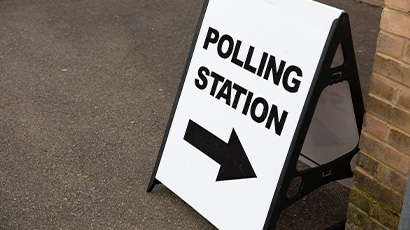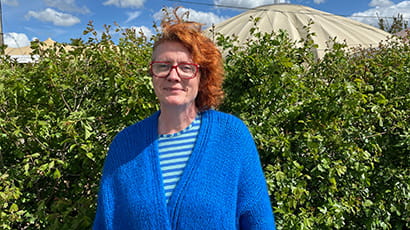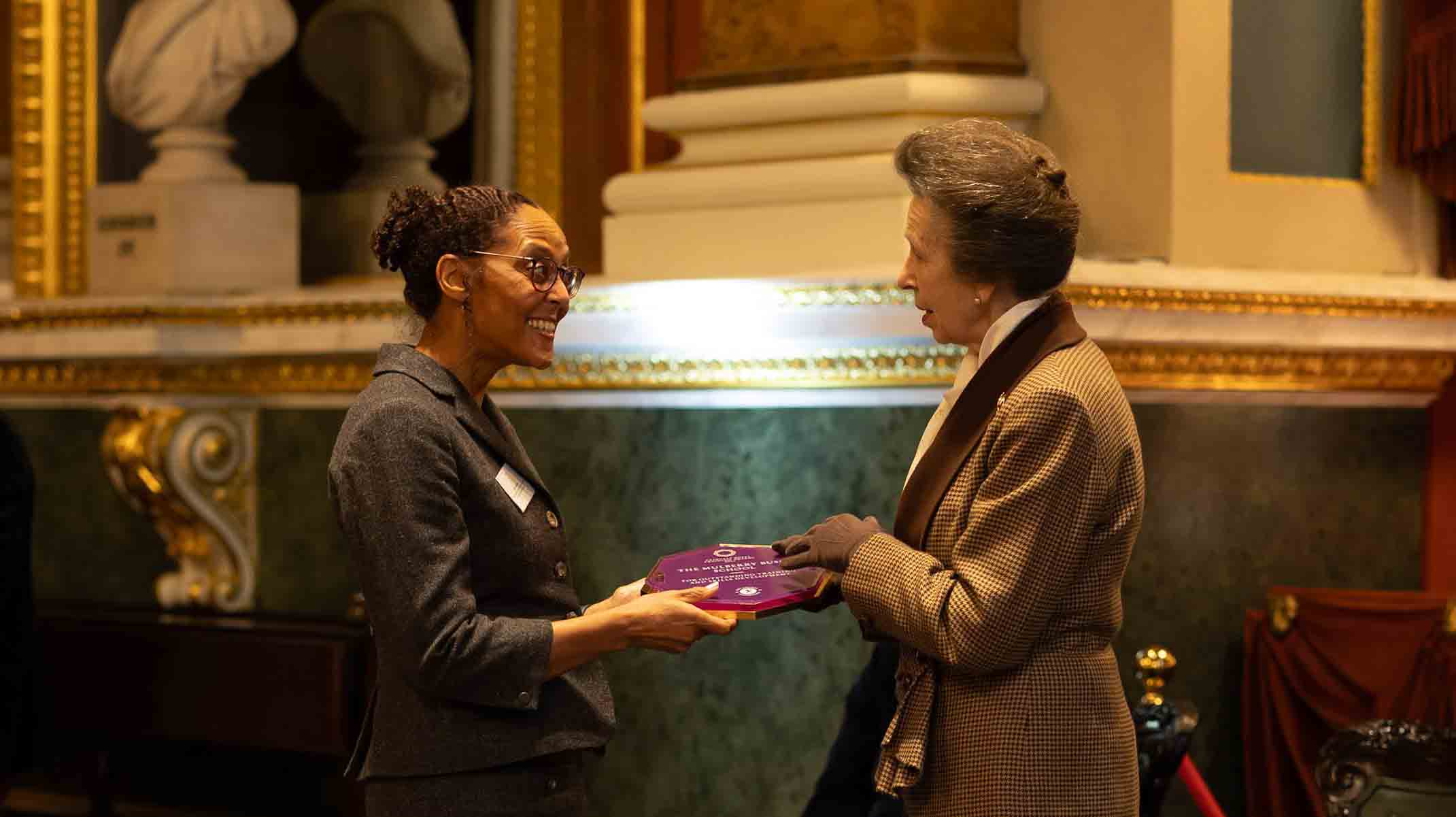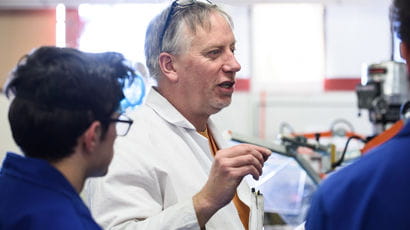Opinion: ‘Generation Z risks having their concerns sidelined in the General Election’

As the polls open to millions of voters across the UK (Thursday 4 July), Phoebe Challis, a politics and international relations student at UWE Bristol, shares her thoughts on what the political parties are offering the younger voter.
Bristol is a city known for its progressive approach to politics, its residents’ actively engaging in environmental, social and political issues across the city.
It is also has a younger population compared to the rest of the UK, with the last two censuses showing a 14.4 per cent increase in people aged 25 to 34.
For this election, I question what policies the candidates are offering young people and if they really respond to the main concerns of generation Z.
A study by Society Watch in 2024 investigated the key generational differences in voting behaviour between baby boomers (born 1946-1964) and gen Z (born between 1997 and 2012).
It revealed that on issues such as social welfare, gen Z overwhelmingly supports government-funded social support, whereas baby boomers believe in individual responsibility.
Housing is another major concern, with gen Z finding it increasingly difficult to own a home. The average household now needs to spend 8.3 times their average earnings to buy a house.
This has led to heightened calls for better support for renters and improvements in renting standards.
Environmental concerns also show a stark generational divide. The study found that 66 per cent of young people prioritise environmental issues over economic growth, compared to only 44 per cent of baby boomers.
With these divisions in mind, young people, who have increasingly disengaged from politics, risk having their concerns sidelined. In the 2019 election, only 47 per cent of 18-24 year olds turned out to vote.
This low participation rate allows candidates to focus on policies that appeal more to the older generations, who are
more likely to vote, leaving young people and students feeling shortchanged.
Highlighting the urgent need for policies that address the specific concerns of younger voters as the election approaches.
It is easy to push the arguments of generation wars, and a widening division of society around age lines, particularly post Brexit.
But is this an oversimplification? Are there really issues specific to these demographics?
Looking across the spectrum of issues, two key concerns for young people seem to emerge and here is how some of the current candidates aim to address them:
Tuition fees and university
Bristol and Bristol West in particular have often been the focus of a huge amount of attention on tuition fees, from back when then Liberal Democrat MP Stephen Williams chose to abstain on the vote on tuition fees as essentially the fatal price in entering government in coalition with the Conservatives in 2010.
The Green Party and the Liberal Democrats have historically been leading the charge for student facing policies on education, with both parties promising to deliver free tuition fees and greater funding for mental health services for students and young people.
The Liberal Democrats would push to reinstate maintenance grants for disadvantaged students immediately, stopping short of abolishing fees.
Labour too has scratched its previous ambitions to abolish tuition fees, however promises to review the system and find a “fairer deal” for students with the intention to introduce maintenance grants.
An alternative approach is being offered by the Conservatives, who wish to see less people in university degrees and more young people in apprenticeships or National Service schemes; Sunak suggested potential sanctions for non-compliance impacting things like access to finance and even driving licenses.
The universities in Bristol are diverse, offering a range of creative and interesting degrees and make the student population in Bristol an important part of the city.
Affordable housing and renting
Bristol’s average rent for a one bed property has rose by 8.1 per cent, with a four or more bed property rising by 5.8 per cent. Candidates pose different approaches to relieve stress on the housing and rental sector.
The Labour and Conservative parties have pledged to build more social housing in the UK with the aim to relieve the pressure on housing availability for students and young people, Labour also have ambitious plans for energy efficiency in rental homes.
The Liberal Democrats have focused on improving the rental sector, this includes more secure housing arrangements and a National Register of Licensed Landlords.
The Green party have followed a similar route, pledging to improve rent controls and tenant protections, whilst also pushing the importance to build new homes.
Whether this is enough to alleviate the recent change in the rental sector in Bristol is unclear.
Our concerns about climate change, tuition fees, housing and employment demand urgent attention! Will the promises of free tuition from the Green Party sway the student vote?
Can Labour’s proposed maintenance grants and energy-efficient homes capture the attention of gen Z? Or will the Conservatives push for apprenticeships and national service resonate more?
Student issues are not alone in being neglected, but with the volume of students and the increasing frustration with the challenges we face, they have significant voting power.
One thing that seems clear in this election is that the conversation about gen Z issues is not part of the mainstream argument and narrative in the election campaign, even in a city like Bristol.
Related news

17 December 2025
Findings revealed from first UK study into experiences of mothers who are survivors of rape pregnancy
UWE Bristol academics have revealed the findings of the first UK-based study of the experiences of mothers who are survivors of rape pregnancy.

07 October 2025
Academic playing role in project to find hidden graves in Mexico using drone technology
A UWE Bristol lecturer is playing a part in a project using drone technology to locate concealed graves in Mexico.

16 September 2025
Dedicated liaison roles ‘instrumental’ for police forces to build trust with sex workers, research finds
A new study from UWE Bristol researchers has found that a dedicated liaison officer could help rebuild trust between the police and sex workers.

11 September 2025
New study to investigate augmented reality as an intervention for emotionally based school avoidance
A UWE Bristol researcher will support a new study exploring whether an augmented reality board game can help young people with emotionally based school avoidance (EBSA).

22 July 2025
Angellica Bell receives honorary doctorate from UWE Bristol
Angellica Bell, a prominent figure on British television and radio, has been awarded an honorary degree by UWE Bristol.

17 July 2025
Want social change? A deeper understanding could be key, study suggests
New study suggests a deeper understanding of social change could help close the gap between challenges and actions, especially on issues like climate change.

16 July 2025
Researchers launch support hub for people with visible differences and their families
A first of its kind website offering evidence-based psychological support for people with visible differences and their families has been launched by university researchers.

27 June 2025
UWE Bristol and Avon and Somerset Police renew partnership to advance police education
UWE Bristol and Avon and Somerset Police have signed a new 10-year agreement, extending their successful partnership to deliver high-quality, forward-thinking police education and training.

25 April 2025
Opinion: ‘Where is the vision in the WECA mayoral race?’
Dr Thom Oliver, senior lecturer in politics, gives his expert opinion as voters prepare to head to the polls to elect a new WECA mayor on 1 May.

16 April 2025
UWE Bristol academic paper named as one of this century’s most-cited
A UWE Bristol academic has co-authored the third most-cited academic paper of this century, according to new analysis released by research journal Nature.

30 January 2025
Women exercising in gyms face barriers including body image and harassment, study finds
Women exercising in gyms often feel judged for their appearance and performance, leading to a persistent sense of inadequacy, according to a new study.

17 December 2024
‘One of a kind’ course accredited by UWE Bristol recognised with Princess Royal Training Award
A foundation degree accredited by UWE Bristol has been awarded a prestigious City & Guilds Princess Royal Training Award.
You may also be interested in

Media enquiries
Enquiries related to news releases and press and contacts for the media team.

Find an expert
Media contacts are invited to check out the vast range of subjects where UWE Bristol can offer up expert commentary.






